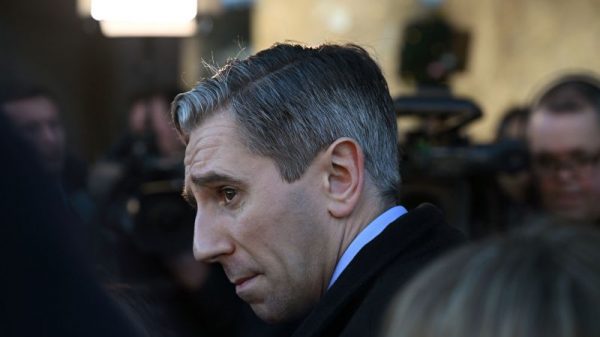The planet is on track to heat up at a much faster rate than scientists have previously predicted, meaning a key global warming threshold could be breached this decade, according to a new study co-authored by James Hansen — the US scientist widely credited with being the first to publicly sound the alarm on the climate crisis in the 1980s.
In the paper, published Thursday in the journal Oxford Open Climate Change, Hansen and more than a dozen other scientists used a combination of paleoclimate data, including data from polar ice cores and tree rings, climate models and observational data, to conclude that the Earth is much more sensitive to climate change than previously understood.
“We are in the early phase of a climate emergency,” according to the report, which warns a surge of heat “already in the pipeline” will rapidly push global temperatures beyond what has been predicted, resulting in warming that exceeds 1.5 degrees Celsius above pre-industrial levels in the 2020s, and above 2 degrees Celsius before 2050.
The findings add to a slew of recent research that concludes the world is hurtling toward 1.5 degrees, a threshold beyond which the impacts of climate change — including extreme heat, drought and floods — will become significantly harder for humans to adapt to.
“The 1.5-degree limit is deader than a doornail,” said Hansen on a call with reporters. “And the 2-degree limit can be rescued, only with the help of purposeful actions.”
Some other scientists, however, have cast doubt on the paper’s conclusions that climate change is accelerating faster than models predict.
Hansen, a director at the Earth Institute at Columbia University, is a renowned climate scientist whose 1988 testimony to the US Senate first brought global attention to climate change.
He has previously warned that the Earth has an energy imbalance, as more energy comes in through sunlight than leaves through heat radiating into space.
The resulting excess heat is equivalent to 400,000 Hiroshima atomic bombs a day, with most of the energy absorbed by the ocean, Hansen’s research found a decade ago.
In this recent paper, Hansen and his co-authors say the energy imbalance has now increased, in part because of successful efforts to tackle particle air pollution, especially in China and through global restrictions on shipping pollution. While this kind of pollution is a serious health hazard, it also has a cooling effect, as particles reflect sunlight away from the Earth.
The imbalance is set to cause accelerated global warming, bringing disastrous consequences, according to the paper, including rapid sea level rise and the potential shutdown of vital ocean currents within this century.
Hansen said he is particularly concerned about the melting of the Antarctic ice sheet and especially the Thwaites Glacier, which acts as a cork, holding back the ice on land and providing an important defense against catastrophic sea level rise.
But the warming is not necessarily locked in, according to the paper, which calls for “extraordinary actions.”
Measures it recommends include taxing carbon pollution, increasing nuclear power to “complement renewable energies” and strong action from developed countries to help developing countries move to low carbon energy. While the highest priority is to drastically reduce planet-heating pollution, this alone will not be enough, the report found.
“If we’re going to keep sea level close to where it is, we actually have to cool the planet,” said Hansen.
One way to do this, the report suggests, is solar geoengineering. This controversial technology aims to cool temperatures by reflecting sunlight away from the Earth, or allowing more heat to escape into space. That can be done through injecting aerosols into the atmosphere or spraying clouds with salt particles to make them more reflective, for example.
Critics warn of unforeseen consequences, including impacts on rainfall and monsoons, as well as “termination shock” if geoengineering were suddenly halted and pent-up warming released.
But Hansen said it should be considered. “Rather than describe those efforts as ‘threatening geoengineering,’ we have to recognize that we are geoengineering the planet right now,” he said, by burning large amounts of planet-heating fossil fuels.
The paper’s findings are alarming and come as the world is experiencing unprecedented heat. This year is on course to be the hottest on record, with every month from June onwards breaking records for the hottest such month.
But while science is clear that the rate of global warming is increasing, the idea that it is accelerating beyond what models predict is controversial.
The findings “are very much out of the mainstream,” said Michael Mann, a leading climate scientist at the University of Pennsylvania.
He also cast doubt on the role of pollution reduction in warming trends, saying the total impact is very small, and warned that solar geoengineering is “unprecedented” and “potentially very dangerous.”
“Whether or not the 1.5 degrees Celsius target is reachable is a matter of policy, not climate physics, at this point,” Mann said.
But Hansen rejected criticisms of the research, saying it’s based on hard numbers and straightforward physics.
“This is not fringe, this is the correct physics and it is the real world,” he said, “and it sometimes takes the community a while to catch on.”







































